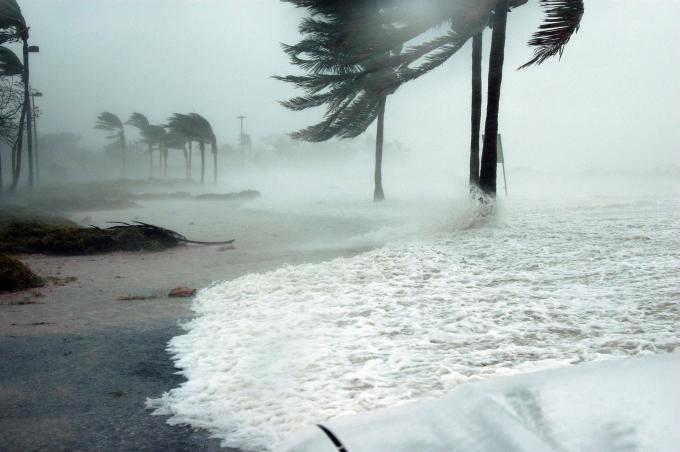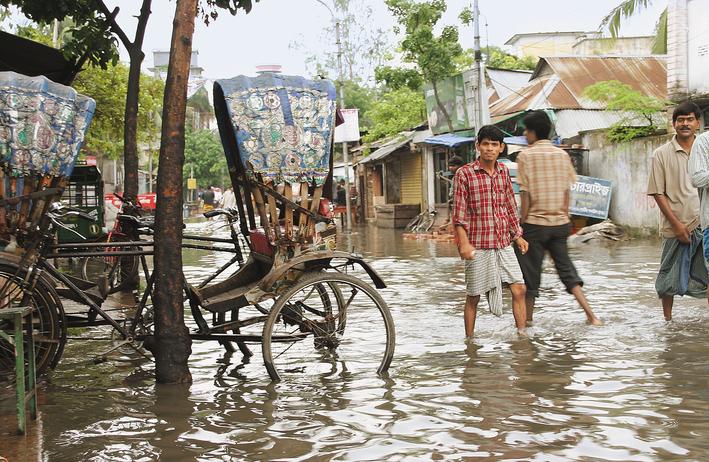What impact? Without a focus on climate resilience, decades of social investment could be undone
"Right now, we are facing a man-made disaster of global scale. Our greatest threat in thousands of years. Climate change."
Sir David Attenborough, COP24 opening remarks
Sir David Attenborough is just one of many who are sounding the alarm bell over climate change, an alarm that is becoming ever louder and more urgent as the impacts of climate change are no longer something that threaten our future but can be seen today. More numerous and more devastating hurricanes, increased flooding, and drought are just a few of the ways that climate change is already damaging our world.

And yet, despite climate change being the existential threat of our time, the inclusive business community has been slow to respond, often only paying lip service to the environment in their business plans.
It is not a coincidence that the world signed up to both the Paris Agreement and the Sustainable Development Goals in the same year. Our ability to continue to lift people out of poverty, to alleviate hunger, provide shelter, and increase life expectancy are all dependent on our ability to address the challenge of climate change. We must limit the scale of climate change through a decarbonisation of our economy and invest in adaptation strategies that ensure all of us, but particularly the most vulnerable amongst us, are protected from the worst impacts of climate change.
The rise of the inclusive business sector has exploded over the past decade. Social enterprises have become mainstream—in both developed and developing countries—and hundreds of billions of dollars are directed towards these efforts annually by impact investors. However, only a small percentage of inclusive businesses have fully integrated climate risk into their business planning and even fewer are focused on providing solutions to environmental problems. What’s more, the impact of climate change threatens to wipe out decades of progress in agriculture, health, and poverty reduction.
So how can the inclusive business sector meet this challenge?
Entrepreneurs need to consider climate and environmental risks in their business planning in the same way that they consider standard business risks, such as competition, technological changes, changing financial and market conditions, and talent management. They need to understand the potential impacts of environmental changes not only on their businesses but on the businesses in their supply chains, and on their customers.
The role of impact investors is perhaps even more critical, as they can not only affect the behaviour of their investee companies but can work to impact entire markets and policy. Impact investors need to ensure that every company in which they invest has looked at how climate risk could potentially impact their business and put into place contingency plans. Without this, impact investors should refuse to invest in a company. Investors should ensure that sufficient funds are available for companies to make long-term investments in their companies to overcome obstacles brought about by climate change, whether that is buying new types of climate resilient seeds or investing in new infrastructure that can withstand changing weather patterns.

But this is just the start.
Impact investors need to start investing in markets and systems if they truly want inclusive businesses to succeed in a climate-impacted world. Supporting business services that can help their investee companies evaluate and meet environmental challenges is crucial to building environmental resilience in entire markets, as well as in individual companies. Investors also need to serve as advocates for policy and regulation that helps limit the impact of climate change and makes it easier for companies to adapt. It is only by engaging in the bigger picture that impact investors and the businesses they support will have the scale to lift those at the bottom of the pyramid.
It is no longer enough for the inclusive business sector to pretend that their social mission exempts them from the hard work of reducing their climate footprint and adapting to the effects of climate change. It is time for the sector to step up and realise that if they continue business as usual, they will be betraying the very people who they have been created to serve—the most vulnerable amongst us.
